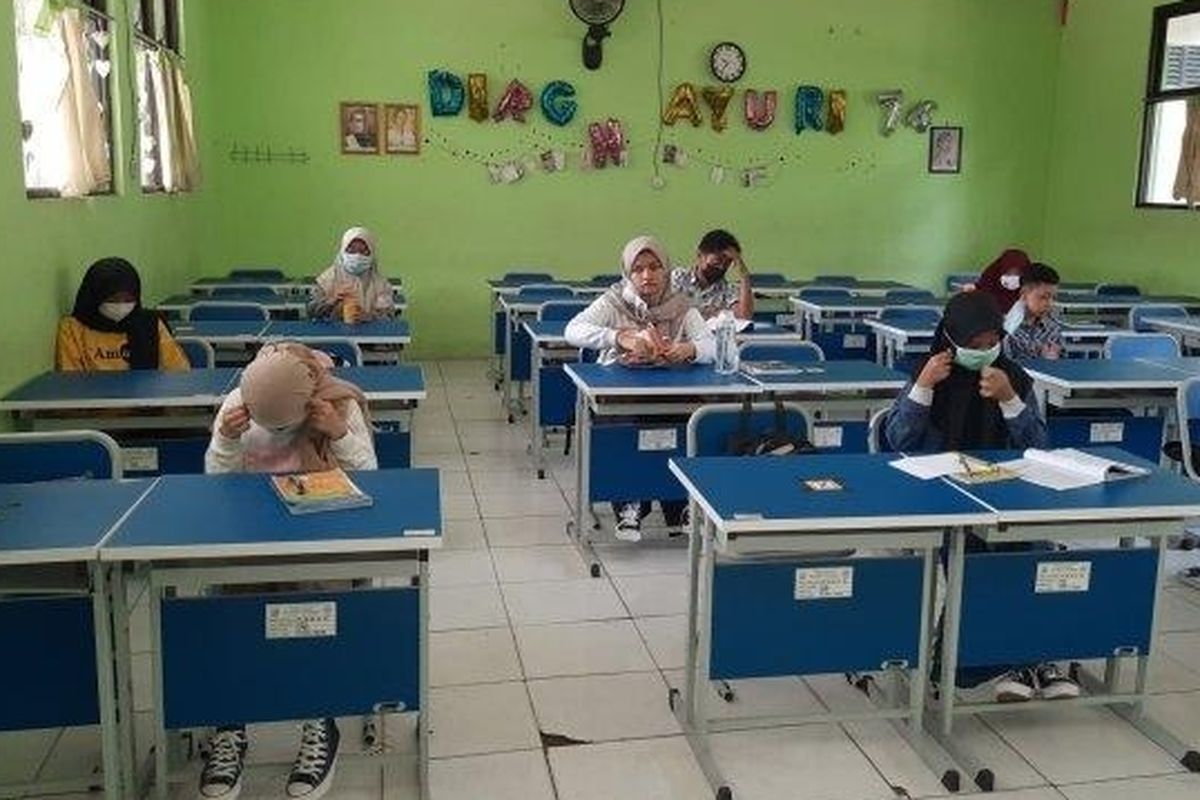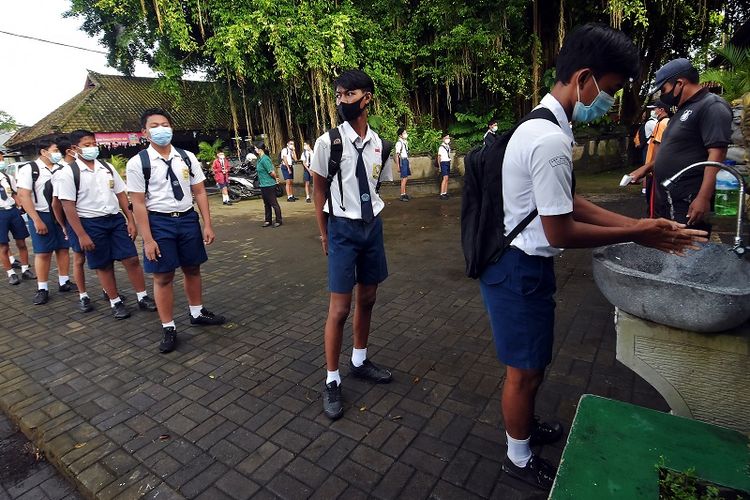Indonesia Allows Limited Face-to-Face Classes For 2021 – 2022 Academic Year

“He lacks focus in online classes, to the point that he does not do his assignments. I am not too worried about him contracting Covid-19, as the correct application of health protocols will protect him from the pandemic,” she asserted.
“My child still plays with the neighbor’s children, though they are often forced to stay at home. It just depends on using face masks and other precautions at all times.”
But for Sutari, the mother of a five-year old child, the pandemic still plays on her mind. “I am concerned that the kindergarten I will enroll him in cannot sufficiently apply health protocols, making him vulnerable to Covid-19,” the city of South Tangerang resident said.
“For that reason, I will defer his enrollment until the pandemic is really over. For now, he can learn from home, as [his father] and I will teach him.”
The moratorium on face to face learning in Indonesia has applied from elementary and secondary schools to universities and other higher education institutions.
(Writers: Haryanti Puspa Sari, Sania Mashabi, Ihsanuddin | Editors: Yohanes Enggar Harususilo, Bayu Galih, Krisiandi, Sandro Gatra)

Sources:
Simak breaking news dan berita pilihan kami langsung di ponselmu. Pilih saluran andalanmu akses berita Kompas.com WhatsApp Channel : https://www.whatsapp.com/channel/0029VaFPbedBPzjZrk13HO3D. Pastikan kamu sudah install aplikasi WhatsApp ya.- Nadiem Makarim
- Muhadjir Effendy
- Yaqut Cholil Qoumas
- Gojek
- SOP
- education
- tracing
- Indonesia Covid-19
- testing
- Indonesia schools
- Tito Karnavian
- education in Indonesia
- education 4.0
- indonesia schools reopening
- indonesia face-to-face classes
- indonesia health protocols
- Coordinating Minister for Human Development and Culture
- face to face learning permission
- face to face learning vs online learning
- face to face learning disadvantages
- face to face learning advantages
- face to face learning indonesia
- face to face learning activities
- face to face learning system
- face to face learning during pandemic
- face to face learning pros and cons
- face to face learning process
- face to face learning program
- face to face learning covid
- face to face learning concept
- face to face learning effectiveness
- face to face learning experience
- face to face learning examples
- face to face learning news
- limited face to face learning
- symptoms
- online classes
- face to face learning in Indonesia
































